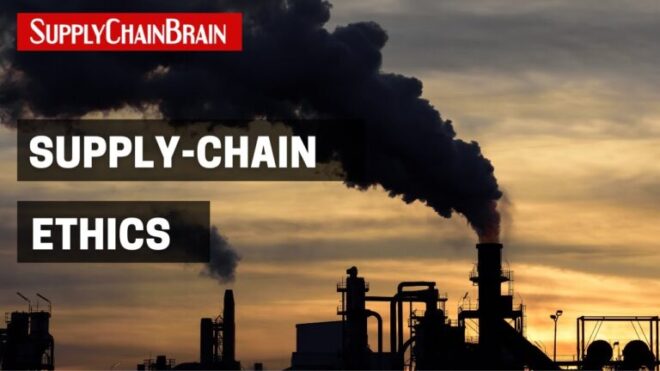In today’s globalized economy, promoting ethical labor practices has become increasingly important. Companies are under growing pressure to ensure fair treatment of workers and uphold human rights standards throughout their supply chains. This article explores the benefits of ethical labor practices, the challenges companies face in implementing them, and the steps businesses can take to promote a more ethical and sustainable approach to labor. From improving worker well-being to enhancing brand reputation, ethical labor practices are key to building a more responsible and socially conscious business model.
What do ethical labor practices entail?
Ethical labor practices encompass fair wages, equal opportunities, and respect for workers’ rights. Companies that uphold these principles strive to create a positive and inclusive work environment where employees feel valued and supported. By prioritizing the well-being of their workforce, organizations can foster a culture of trust and mutual respect, ultimately leading to increased productivity and employee satisfaction.
What do ethical working practices entail?
Ethical working practices encompass a set of principles that guide how individuals and organizations conduct themselves in the workplace. It involves treating employees, customers, and stakeholders with honesty, fairness, and respect. By adhering to ethical standards, organizations can build trust, enhance their reputation, and foster a positive work environment.
One key aspect of ethical working practices is maintaining transparency and integrity in all business dealings. This includes being honest in communication, honoring commitments, and upholding high ethical standards in decision-making processes. By prioritizing integrity, organizations can build credibility and trust with their stakeholders, leading to long-term success and sustainability.
Furthermore, ethical working practices also involve promoting diversity and inclusion in the workplace. This means creating a supportive and inclusive environment where all individuals are valued and respected, regardless of their background or differences. By embracing diversity, organizations can harness the unique perspectives and talents of their employees, leading to increased innovation, creativity, and overall success.
What is the definition of promoting ethics?
Promoting ethics within an organization means actively encouraging employees to uphold moral principles and values in their daily work. This can be achieved through transparent communication, setting a positive example as a leader, and consistently reinforcing the importance of ethical behavior. By promoting ethical conduct, companies can create a culture of trust, respect, and accountability among employees, ultimately leading to greater success and reputation in the business world.
To promote ethics effectively, leaders must lead by example, communicate the organization’s values clearly and consistently, and provide employees with the necessary resources and support to make ethical decisions. By establishing a strong ethical framework and promoting a culture of integrity, companies can build a solid foundation for sustainable growth and success. Encouraging ethical behavior not only benefits the organization and its employees, but also contributes to a positive impact on society as a whole.
Fair Wages, Fair Treatment: Ethical Labor Practices
In today’s global economy, ethical labor practices are more important than ever. Fair wages and fair treatment of workers are essential for creating a sustainable and equitable workforce. Companies that prioritize ethical labor practices not only create a positive working environment but also build trust with consumers who are increasingly demanding transparency and accountability. By ensuring fair wages and fair treatment, businesses can contribute to a more just and ethical society while also reaping the benefits of a loyal and motivated workforce. Ultimately, ethical labor practices are not only the right thing to do, but they also make good business sense.
Responsibility in Employment: A Push for Fairness
In today’s rapidly evolving workplace, the concept of responsibility in employment is more crucial than ever. Employers have a duty to treat their employees fairly and ethically, ensuring that they are provided with a safe and inclusive work environment. This push for fairness not only promotes employee well-being, but also fosters a positive company culture that values integrity and equality.
By upholding the principles of responsibility in employment, organizations can enhance employee morale, productivity, and retention rates. Fair treatment in the workplace leads to a more engaged and motivated workforce, ultimately driving success and growth for the company. It is imperative for businesses to prioritize fairness and equality in all aspects of employment, creating a more sustainable and equitable future for all individuals involved.
Promoting Ethical Labor: The Need for Fair Employment
In today’s global economy, promoting ethical labor practices is more important than ever. Fair employment is not only a moral imperative, but it also results in a more productive and sustainable workforce. By ensuring that workers are treated fairly, businesses can attract and retain top talent, leading to increased innovation and overall success.
One key aspect of promoting ethical labor is ensuring that workers are paid a fair wage for their work. This includes not only meeting legal minimum wage requirements, but also providing benefits and opportunities for advancement. Fair compensation not only improves the lives of workers and their families, but also leads to increased job satisfaction and loyalty.
Additionally, businesses must prioritize creating a safe and inclusive work environment for all employees. This includes implementing policies to prevent discrimination and harassment, as well as providing opportunities for professional development and growth. By fostering a culture of respect and fairness, businesses can create a positive and productive work environment where employees feel valued and motivated to contribute their best work.
A Call for Ethical Labor: Ensuring Fair and Responsible Practices
In today’s global economy, it is crucial to prioritize ethical labor practices to ensure fair treatment of workers and responsible business operations. Companies must uphold standards that promote transparency, equity, and respect for human rights in all aspects of their operations. By committing to ethical labor practices, businesses can cultivate a positive reputation, build trust with consumers, and contribute to a more sustainable and equitable society.
It is time for businesses to answer the call for ethical labor practices and prioritize the well-being of their workers. By implementing fair wages, safe working conditions, and opportunities for professional growth, companies can create a culture of respect and integrity within their organizations. Through ethical labor practices, businesses can demonstrate their commitment to social responsibility and set a positive example for others in the industry to follow. Let us work together to ensure fair and responsible practices that benefit both workers and businesses alike.
In promoting ethical labor practices, we not only uphold the rights and dignity of workers but also contribute to a more sustainable and just global economy. By prioritizing fair wages, safe working conditions, and equitable treatment for all workers, we can create a world where businesses thrive without compromising on human rights. It is time for us to prioritize the well-being of those who make our products and services possible, and by doing so, we can build a brighter future for all.



